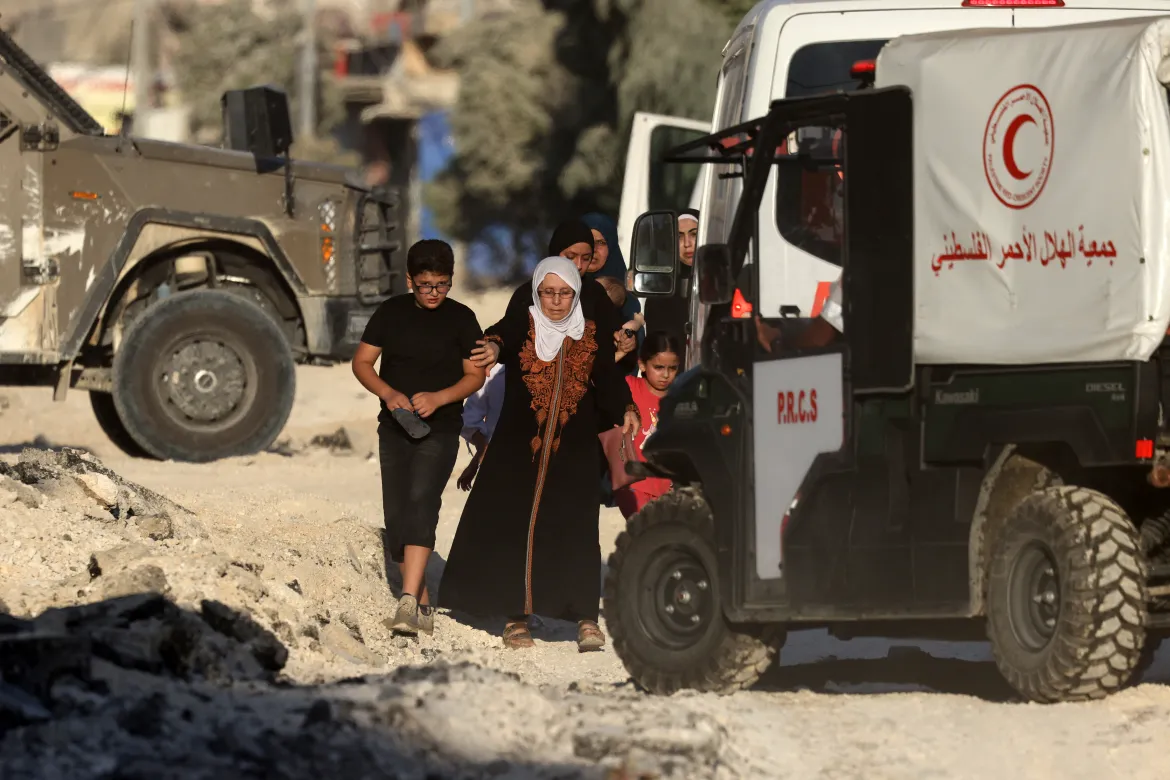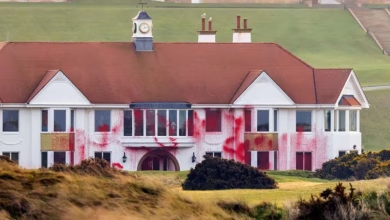On Thursday, the Israeli military reported that its forces had killed five Palestinian fighters who were hiding in a mosque in Tulkarm, a city located in the occupied West Bank.
This operation, which commenced in the early hours of Wednesday, represents one of the most significant assaults on the area in recent months.
The raid involved hundreds of Israeli troops, supported by helicopters, drones, and armored vehicles, targeting Tulkarm, Jenin, and parts of the Jordan Valley. A witness from Reuters noted that the operation was still ongoing.
During the raid, Palestinian telecommunications provider Jawwal suffered a complete network outage, disrupting communications across Gaza and the West Bank.
Palestinian health authorities reported that at least 12 Palestinians were killed during Wednesday’s operations. In Jenin on Thursday, the streets were deserted as bulldozers cleared debris, drones hovered overhead, and Israeli troops were stationed outside the city’s main hospital, which had been blockaded the previous day with earth mounds to prevent fighters from seeking refuge there.
The armed factions of Hamas, Islamic Jihad, and Fatah claimed their members were actively resisting the Israeli forces, with bomb attacks on military vehicles reported in Jenin, Tulkarm, and Far’a in the Jordan Valley.
Among the five fighters killed in Tulkarm was Muhhamad Jabber, known as “Abu Shujaa,” a prominent leader of a militant network in the Nur Shams refugee camp near Tulkarm.
The violence in the West Bank has surged since the onset of Israel’s conflict with Hamas in Gaza nearly 11 months ago. Israel has accused Iran of supplying weapons and support to militant groups in the region, contributing to the increased military activity in the West Bank. Concurrently, Jewish settlers have been involved in frequent vigilante attacks against Palestinian communities.
Israeli Foreign Minister Israel Katz, in a recent X post, described the situation as a war and stressed the importance of Israel’s victory. He accused Iran of attempting to destabilize Jordan and create an eastern front against Israel, akin to its activities in Gaza and Lebanon, where Israel has been engaged in near-daily exchanges of fire with Hezbollah militants.
To address the eastern threat, Katz suggested that Israel might need to employ “all necessary means,” including the temporary evacuation of civilians from certain areas to avoid harm during intense combat.
In Gaza, the ongoing conflict has caused extensive displacement, severe food shortages, and disease, with nearly all of the enclave’s 2.3 million residents having been displaced multiple times.
The latest escalation began on October 7, when Hamas launched an attack from Gaza into southern Israel, resulting in 1,200 deaths and over 250 hostages, according to Israeli figures. Israel’s subsequent military actions in Gaza have led to widespread destruction and over 40,500 deaths, as reported by Palestinian health officials.
Internationally mediated efforts to end the conflict are continuing. Since the Gaza conflict began, thousands of Palestinians have been detained in West Bank and East Jerusalem raids, with over 660 individuals—both fighters and civilians—killed, according to Palestinian health ministry figures. During the same period, at least 30 Israelis have been killed in attacks in Jerusalem and the West Bank, according to Israeli reports.

